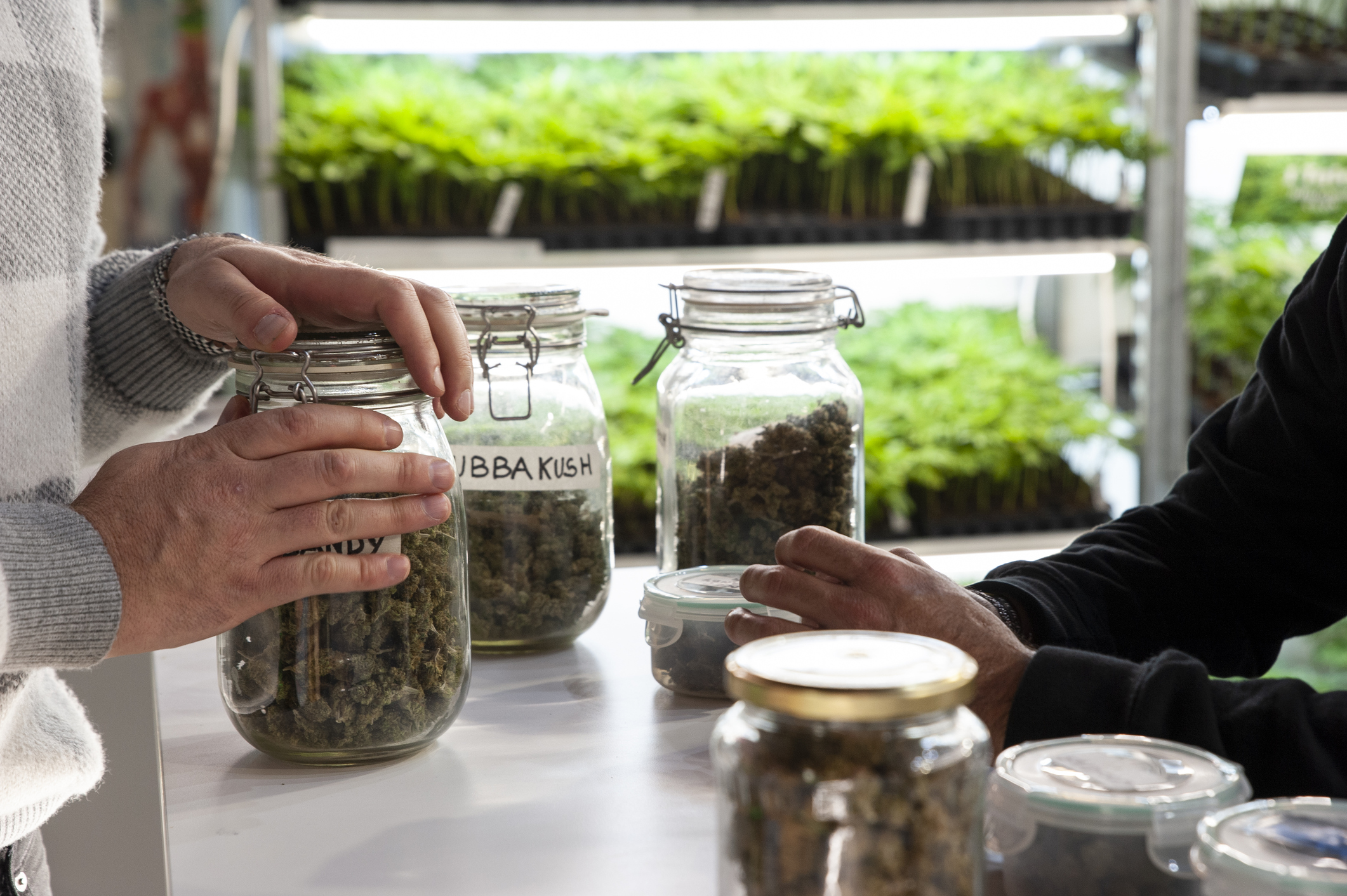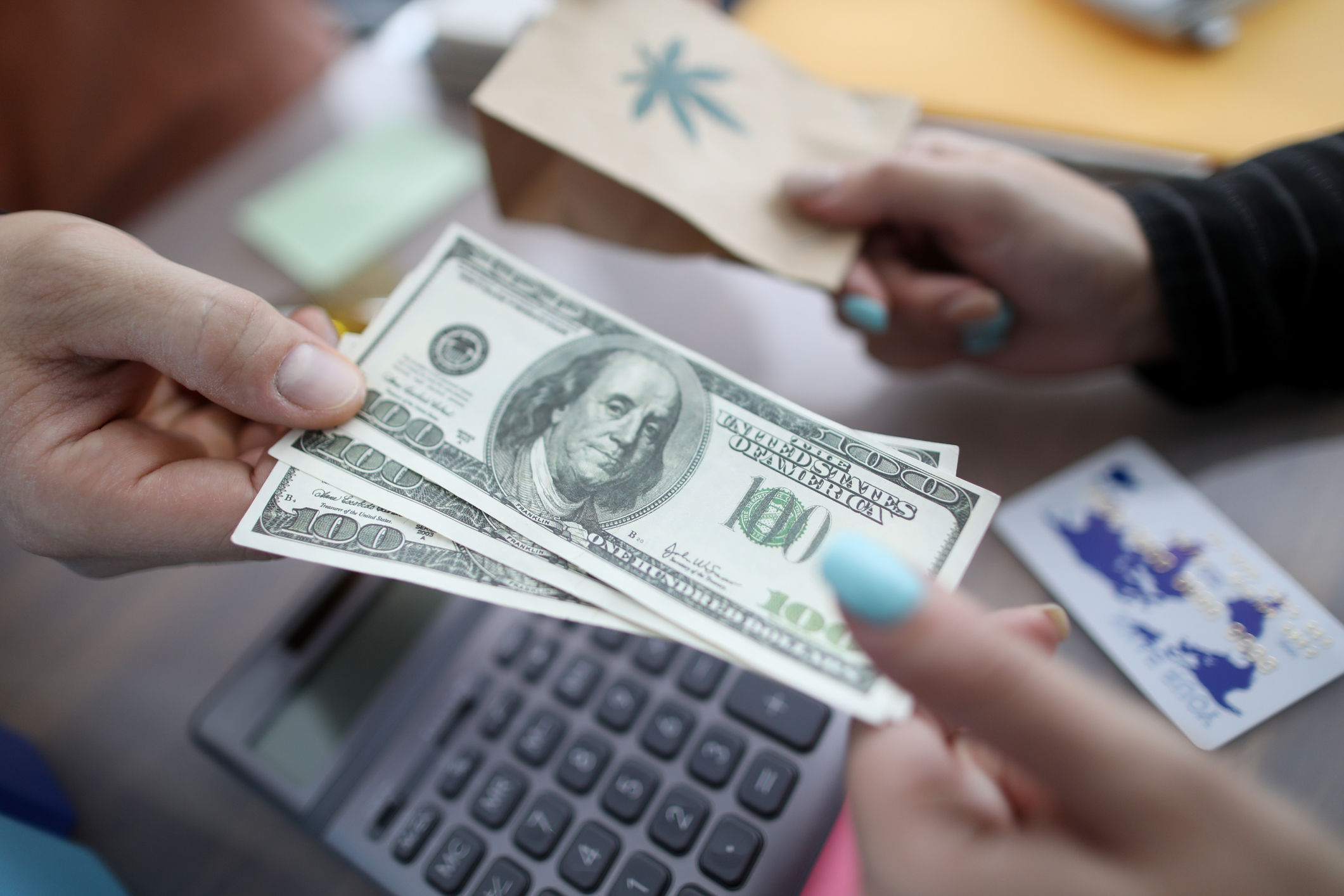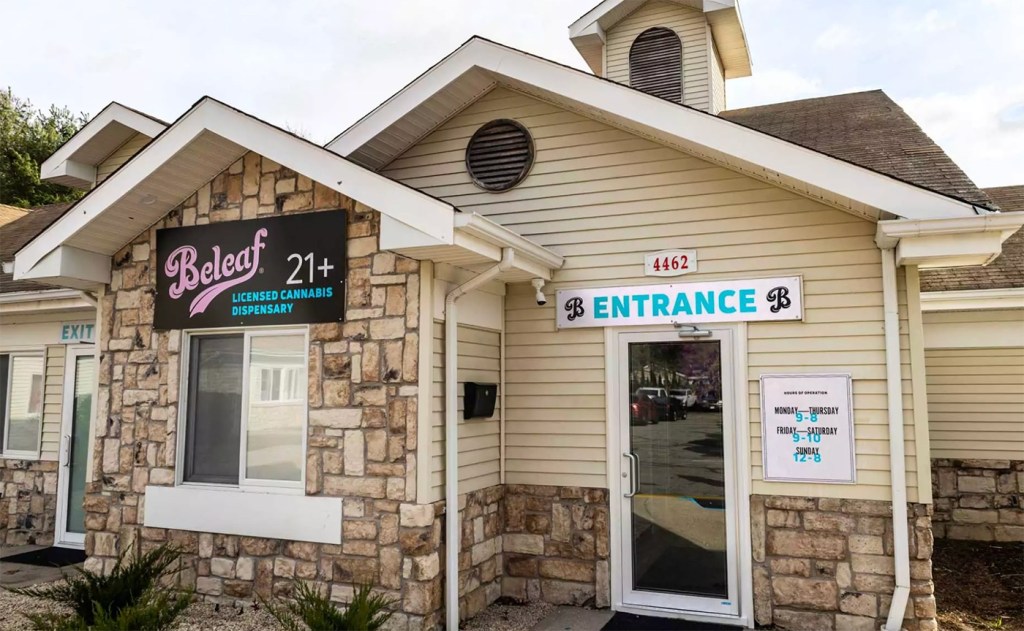NY OKs Marijuana Retail Licenses, Unclear When Pot Shops Will Hit East End

New York State regulators gave weed dealers the green light to set up shop, but local municipalities in the East End’s pot district have yet to approve locations establishing the state’s first-ever legal recreational marijuana dispensaries.
Of the 36 licenses that the state Cannabis Control Board (CCB) approved statewide on November 21, six of the winning entities are to do business on Long Island, with more to come when regulators plan to issue another 139 out of a pool of 900 applicants.
Only individuals with prior cannabis-related offenses — or who are the family member of someone with one — and who have a record of a successful business or nonprofit were eligible for Conditional Adult-Use Retail Dispensary (CAURD) licenses.
“Today is a monumental day for New York’s nascent cannabis industry,” said Tremaine Wright, who chairs the CCB. “With the first adult-use retail dispensary licenses in the hands of businesses and eligible nonprofits, we’ve ensured the first sales will be made at dispensaries operated by those impacted by the unjust enforcement of cannabis prohibition.”
The development is a significant step forward for the state, which became the 16th nationwide to legalize recreational marijuana for adults older than 21 last year — and is now among 21 states, plus Washington, D.C. to end prohibition on pot.
Only four town governments on Long Island — Riverhead, Southampton, Brookhaven and Babylon — decided not to opt out of allowing pot shops and cannabis cafes to operate within their borders, but none have received paperwork seeking to open brick-and-mortar locations from the new retail licensees.
Although some are expected to open by the end of the year, it may take longer than that on Long Island.

When Will Marijuana Shops Open on the East End?
“We have not put zoning in place yet,” said Southampton Town Supervisor Jay Schneiderman, noting that the Shinnecock Indian Nation’s Little Beach Harvest dispensary is slated to open next year regardless, since the tribe is not under town jurisdiction. “Therefore there is nowhere yet to apply.”
Earlier this month, the Town of Riverhead passed zoning rules that prohibit retail or on-site consumption establishments to be located near a school, playground, or daycare center, among other facilities and rules. Babylon is considering similar rules. And when the Town of Brookhaven opted in, it limited such establishments to industrial areas.
Regardless of physical restrictions on retail locations, at least one of the half dozen LI reefer retailers — a company called Strain Stars — advertises itself as offering delivery. And that is perfectly legal anywhere on Long Island and can get started sooner, according to the state Office of Cannabis Management (OCM).
“We will be issuing guidance on delivery in the coming weeks so those awarded today can get started,” said Freeman Klopott, an OCM representative. “Delivery can occur in any area, regardless of opt out.”
In addition to Strain Stars, the other five ganja retailers coming to LI — Albert D. Capraro, Brian Stark Enterprises LLC, Hydro Phonics, Keep It A 100 LLC and Root 13 LLC — either could not be reached or were not immediately available for comment.
A court ruling earlier this month has delayed the CCB from approving dispensaries in some parts of the state — LI is not affected — amid a legal dispute over licensing criteria. Nevertheless, officials said they would issue the remaining licenses as quickly as
possible.
With the first licenses now issued, it remained to be seen whether officials would step up their efforts to go after scores of unauthorized dispensaries opened in the past year by people who shrugged at licensing requirements.
The cannabis board also advanced proposed regulations for the sale of marijuana, with a focus on public health, product quality and safety and preventing those under 21 from buying cannabis. The CCB additionally approved licenses for eight cannabis processing facilities, three labs and 16 additional cultivators, although their identities were not immediately released. Of more than 250 pot farms approved statewide, nearly a dozen are on the East End.
New York has also planned a $200 million public-private fund to aid “social equity” applicants to help redress the ravages of the war on drugs, especially in communities of color. Nonprofits were considered for licensure if they had a history of serving current or formerly incarcerated people, among other requirements.
Housing Works, a New York City nonprofit, said the license it got would allow it to continue its work helping low-income New Yorkers living with HIV or AIDS.
“It was clear to us that sales from the legal recreational cannabis industry would allow us to help more people and increase services to our clients whether that is supporting those that have been unjustly incarcerated in the War on Drugs, or people experiencing homelessness and/or living with HIV/AIDS,” the agency said in a statement.
Many members of the CCB and members of the public who attended the meeting heralded the first CAURD licenses as a win not only for the state’s economy, but also as a triumph for social justice. In March, Gov. Kathy Hochul announced the Seeding Opportunity Initiative — which aimed to equip individuals with prior cannabis-related criminal offenses the opportunity to make the first legal marijuana sales with products by New York farmers.
Christopher Alexander, the executive director of OCM, said one of the defining components of the Seeding Opportunity Initiative moving forward will be identifying communities that are disproportionately impacted by both cannabis-related offenses and bureaucratic red tape.
He said the office is trying to give those groups — primarily people of color and women — more of an opportunity to apply and receive licensure in starting their own dispensaries.
“We believe many of their stories will demystify a long-neglected and demonized community that has played a significant role in building New York’s pre-existing cannabis market,” he said. “The data is irrefutable. Nowhere in this country was the enforcement of cannabis prohibition weaponized more methodically against under-resourced communities than right here in New York.”
-With Associated Press and Camille Botello of The Bronx Times



